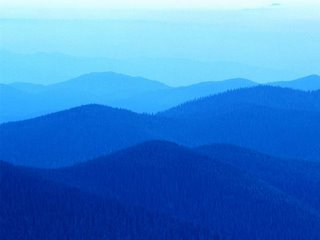 PhysicsMain Article: Nobel Prize in Physics
PhysicsMain Article: Nobel Prize in Physics 2006 John C. Mather, George F. Smoot
2005 Roy J. Glauber, John L. Hall, Theodor W. Hänsch
2004 David J. Gross, H. David Politzer, Frank Wilczek
2003 Alexei A. Abrikosov, Vitaly L. Ginzburg, Anthony J. Leggett
2002 Raymond Davis Jr., Masatoshi Koshiba, Riccardo Giacconi
2001 Eric A. Cornell, Wolfgang Ketterle, Carl E. Wieman

2000 Zhores I. Alferov, Herbert Kroemer, Jack S. Kilby
1999 Gerardus 't Hooft, Martinus J.G. Veltman
1998 Robert B. Laughlin, Horst L. Störmer, Daniel C. Tsui
1997 Steven Chu, Claude Cohen-Tannoudji, William D. Phillips
1996 David M. Lee, Douglas D. Osheroff, Robert Coleman Richardson
1995 Martin L. Perl, Frederick Reines
1994 Bertram N. Brockhouse, Clifford G. Shull
1993 Russell A. Hulse, Joseph H. Taylor Jr.
1992 Georges Charpak
1991 Pierre-Gilles de Gennes
1990 Jerome I. Friedman, Henry W. Kendall, Richard E. Taylor
1989 Norman F. Ramsey, Hans G. Dehmelt, Wolfgang Paul
1988 Leon M. Lederman, Melvin Schwartz, Jack Steinberger
1987 J. Georg Bednorz, K. Alex Müller
1986 Ernst Ruska, Gerd Binnig, Heinrich Rohrer
1985 Klaus von Klitzing
1984 Carlo Rubbia, Simon van der Meer
1983 Subramanyan Chandrasekhar, William A. Fowler
1982 Kenneth G. Wilson
1981 Nicolaas Bloembergen, Arthur L. Schawlow, Kai M. Siegbahn
1980 James Cronin, Val Fitch
1979 Sheldon Glashow, Abdus Salam, Steven Weinberg
1978 Pyotr Kapitsa, Arno Penzias, Robert Woodrow Wilson
1977 Philip W. Anderson, Sir Nevill F. Mott, John H. van Vleck
1976 Burton Richter, Samuel C.C. Ting
1975 Aage N. Bohr, Ben R. Mottelson, James Rainwater
1974 Martin Ryle, Antony Hewish
1973 Leo Esaki, Ivar Giaever, Brian D. Josephson
1972 John Bardeen, Leon Neil Cooper, Robert Schrieffer
1971 Dennis Gabor
1970 Hannes Alfvén, Louis Néel
1969 Murray Gell-Mann
1968 Luis Alvarez
1967 Hans Bethe
1966 Alfred Kastler
1965 Sin-Itiro Tomonaga, Julian Schwinger, Richard P. Feynman
1964 Charles H. Townes, Nicolay G. Basov, Aleksandr M. Prokhorov
1963 Eugene Wigner, Maria Goeppert-Mayer, J. Hans D. Jensen
1962 Lev Landau
1961 Robert Hofstadter, Rudolf Mössbauer
1960 Donald A. Glaser
1959 Emilio Segrè, Owen Chamberlain
1958 Pavel A. Cherenkov, Il´ja M. Frank, Igor Y. Tamm
1957 Chen Ning Yang, Tsung-Dao Lee
1956 William B. Shockley, John Bardeen, Walter H. Brattain
1955 Willis E. Lamb, Polykarp Kusch
1954 Max Born, Walther Bothe
1953 Frits Zernike
1952 Felix Bloch, E. M. Purcell
1951 John Cockcroft, Ernest T.S. Walton
1950 Cecil Powell
1949 Hideki Yukawa
1948 Patrick M.S. Blackett
1947 Edward V. Appleton
1946 Percy W. Bridgman
1945 Wolfgang Pauli
1944 Isidor Isaac Rabi
1943 Otto Stern
1942 No prize awarded. 1/3 of the prize money for this year was allocated to the Main Fund, 2/3 to the Special Fund of the physics section.
1941 No prize awarded. 1/3 of the prize money for this year was allocated to the Main Fund, 2/3 to the Special Fund of the physics section.
1940 No prize awarded. 1/3 of the prize money for this year was allocated to the Main Fund, 2/3 to the Special Fund of the physics section.
1939 Ernest Lawrence
1938 Enrico Fermi
1937 Clinton Davisson, George Paget Thomson
1936 Victor F. Hess, Carl D. Anderson
1935 James Chadwick
1934 No prize awarded. 1/3 of the prize money for this year was allocated to the Main Fund, 2/3 to the Special Fund of the physics section.
1933 Erwin Schrödinger, Paul A.M. Dirac
1932 Werner Heisenberg
1931 No prize awarded. The prize money for this year was allocated to the Special Fund of the physics section.
1930 Venkata Raman
1929 Louis de Broglie
1928 Owen Willans Richardson
1927 Arthur H. Compton, C.T.R. Wilson
1926 Jean Baptiste Perrin
1925 James Franck, Gustav Hertz
1924 Manne Siegbahn
1923 Robert A. Millikan
1922 Niels Bohr
1921 Albert Einstein
1920 Charles Edouard Guillaume
1919 Johannes Stark
1918 Max Planck
1917 Charles Glover Barkla
1916 No prize awarded. The prize money for this year was allocated to the Special Fund of the physics section.
1915 William Henry Bragg, William Lawrence Bragg (father and son)
1914 Max von Laue
1913 Heike Kamerlingh Onnes
1912 Gustaf Dalén
1911 Wilhelm Wien
1910 Johannes Diderik van der Waals
1909 Guglielmo Marconi, Ferdinand Braun
1908 Gabriel Lippmann
1907 Albert A. Michelson
1906 J.J. Thomson
1905 Philipp Lenard
1904 Lord Rayleigh
1903 Henri Becquerel, Pierre Curie, Maria Skłodowska-Curie
1902 Hendrik A. Lorentz, Pieter Zeeman
1901 Wilhelm Conrad Röntgen
ChemistryMain Article: Nobel Prize in Chemistry 2006 Roger D. Kornberg 2005 Robert Grubbs, Richard Schrock, Yves Chauvin 2004 Aaron Ciechanover, Avram Hershko, Irwin Rose 2003 Peter Agre, Roderick MacKinnon 2002 John B. Fenn, Koichi Tanaka, Kurt Wüthrich 2001 William S. Knowles, Ryoji Noyori, K. Barry Sharpless 2000 Alan Heeger, Alan G. MacDiarmid, Hideki Shirakawa 1999 Ahmed Zewail 1998 Walter Kohn, John Pople 1997 Paul D. Boyer, John E. Walker, Jens C. Skou 1996 Robert F. Curl Jr., Sir Harold Kroto, Richard E. Smalley 1995 Paul J. Crutzen, Mario J. Molina, F. Sherwood Rowland 1994 George A. Olah 1993 Kary B. Mullis, Michael Smith 1992 Rudolph A. Marcus 1991 Richard R. Ernst 1990 Elias James Corey 1989 Sidney Altman, Thomas R. Cech 1988 Johann Deisenhofer, Robert Huber, Hartmut Michel 1987 Donald J. Cram, Jean-Marie Lehn, Charles J. Pedersen 1986 Dudley R. Herschbach, Yuan T. Lee, John C. Polanyi 1985 Herbert A. Hauptman, Jerome Karle 1984 Bruce Merrifield 1983 Henry Taube 1982 Aaron Klug 1981 Kenichi Fukui, Roald Hoffmann 1980 Paul Berg, Walter Gilbert, Frederick Sanger 1979 Herbert C. Brown, Georg Wittig 1978 Peter Mitchell 1977 Ilya Prigogine 1976 William Lipscomb 1975 John Cornforth, Vladimir Prelog 1974 Paul J. Flory 1973 Ernst Otto Fischer, Geoffrey Wilkinson 1972 Christian Anfinsen, Stanford Moore, William H. Stein 1971 Gerhard Herzberg 1970 Luis Leloir 1969 Derek Barton, Odd Hassel 1968 Lars Onsager 1967 Manfred Eigen, Ronald G.W. Norrish, George Porter 1966 Robert S. Mulliken 1965 Robert Burns Woodward 1964 Dorothy Crowfoot Hodgkin 1963 Karl Ziegler, Giulio Natta 1962 Max F. Perutz, John C. Kendrew 1961 Melvin Calvin 1960 Willard F. Libby 1959 Jaroslav Heyrovský 1958 Frederick Sanger 1957 Lord Todd 1956 Sir Cyril Hinshelwood, Nikolay Semenov 1955 Vincent du Vigneaud 1954 Linus Pauling 1953 Hermann Staudinger 1952 Edwin M. McMillan, Glenn T. Seaborg 1951 Max Theiler 1950 Otto Diels, Kurt Alder 1949 William F. Giauque 1948 Arne Wilhelm Kaurin Tiselius 1947 Sir Robert Robinson 1946 James B. Sumner, John H. Northrop, Wendell M. Stanley 1945 Artturi Virtanen 1944 Otto Hahn 1943 George de Hevesy 1942 No prize awarded. 1/3 of the prize money for this year was allocated to the Main Fund, 2/3 to the Special Fund of the chemistry section. 1941 No prize awarded. 1/3 of the prize money for this year was allocated to the Main Fund, 2/3 to the Special Fund of the chemistry section. 1940 No prize awarded. 1/3 of the prize money for this year was allocated to the Main Fund, 2/3 to the Special Fund of the chemistry section. 1939 Adolf Butenandt, Leopold Ruzicka 1938 Richard Kuhn 1937 Norman Haworth, Paul Karrer 1936 Peter Debye 1935 Frédéric Joliot-Curie, Irène Joliot-Curie 1934 Harold C. Urey 1933 No prize awarded. 1/3 of the prize money for this year was allocated to the Main Fund, 2/3 to the Special Fund of the chemistry section. 1932 Irving Langmuir 1931 Carl Bosch, Friedrich Bergius 1930 Hans Fischer 1929 Arthur Harden, Hans von Euler-Chelpin 1928 Adolf Windaus 1927 Heinrich Wieland 1926 The Svedberg 1925 Richard Zsigmondy 1924 No prize awarded. The prize money for this year was allocated to the Special Fund of the chemistry section. 1923 Fritz Pregl 1922 Francis W. Aston 1921 Frederick Soddy 1920 Walther Nernst 1919 No prize awarded. The prize money for this year was allocated to the Special Fund of the chemistry section. 1918 Fritz Haber 1917 No prize awarded. The prize money for this year was allocated to the Special Fund of the chemistry section. 1916 No prize awarded. The prize money for this year was allocated to the Special Fund of the chemistry section. 1915 Richard Willstätter 1914 Theodore William Richards 1913 Alfred Werner 1912 Victor Grignard, Paul Sabatier 1911 Maria Skłodowska-Curie 1910 Otto Wallach 1909 Wilhelm Ostwald 1908 Ernest Rutherford 1907 Eduard Buchner 1906 Henri Moissan 1905 Adolf von Baeyer 1904 Sir William Ramsay 1903 Svante Arrhenius 1902 Emil Fischer 1901 Jacobus H. van 't Hoff
Physiology or medicineMain Article:Nobel Prize in Physiology or Medicine 2006 Andrew Z. Fire, Craig C. Mello 2005 Barry J. Marshall, J. Robin Warren 2004 Richard Axel, Linda B. Buck 2003 Paul C. Lauterbur, Peter Mansfield 2002 Sydney Brenner, H. Robert Horvitz, John E. Sulston 2001 Leland H. Hartwell, Tim Hunt, Sir Paul Nurse 2000 Arvid Carlsson, Paul Greengard, Eric R. Kandel 1999 Günter Blobel 1998 Robert F. Furchgott, Louis J. Ignarro, Ferid Murad 1997 Stanley B. Prusiner 1996 Peter C. Doherty, Rolf M. Zinkernagel 1995 Edward B. Lewis, Christiane Nüsslein-Volhard, Eric F. Wieschaus 1994 Alfred G. Gilman, Martin Rodbell 1993 Richard J. Roberts, Phillip A. Sharp 1992 Edmond H. Fischer, Edwin G. Krebs 1991 Erwin Neher, Bert Sakmann 1990 Joseph E. Murray, E. Donnall Thomas 1989 J. Michael Bishop, Harold E. Varmus 1988 James W. Black, Gertrude B. Elion, George H. Hitchings 1987 Susumu Tonegawa 1986 Stanley Cohen, Rita Levi-Montalcini 1985 Michael S. Brown, Joseph L. Goldstein 1984 Niels K. Jerne, Georges J.F. Köhler, César Milstein 1983 Barbara McClintock 1982 Sune K. Bergström, Bengt I. Samuelsson, John R. Vane 1981 Roger W. Sperry, David H. Hubel, Torsten N. Wiesel 1980 Baruj Benacerraf, Jean Dausset, George D. Snell 1979 Allan M. Cormack, Godfrey N. Hounsfield 1978 Werner Arber, Daniel Nathans, Hamilton O. Smith 1977 Roger Guillemin, Andrew V. Schally, Rosalyn Yalow 1976 Baruch S. Blumberg, D. Carleton Gajdusek 1975 David Baltimore, Renato Dulbecco, Howard M. Temin 1974 Albert Claude, Christian de Duve, George E. Palade 1973 Karl von Frisch, Konrad Lorenz, Nikolaas Tinbergen 1972 Gerald M. Edelman, Rodney R. Porter 1971 Earl W. Sutherland, Jr. 1970 Sir Bernard Katz, Ulf von Euler, Julius Axelrod 1969 Max Delbrück, Alfred D. Hershey, Salvador E. Luria 1968 Robert W. Holley, H. Gobind Khorana, Marshall W. Nirenberg 1967 Ragnar Granit, Haldan K. Hartline, George Wald 1966 Peyton Rous, Charles B. Huggins 1965 François Jacob, André Lwoff, Jacques Monod 1964 Konrad Bloch, Feodor Lynen 1963 Sir John Eccles, Alan L. Hodgkin, Andrew Huxley 1962 Francis Crick, James Watson, Maurice Wilkins 1961 Georg von Békésy 1960 Frank Macfarlane Burnet, Peter Medawar 1959 Severo Ochoa, Arthur Kornberg 1958 George Beadle, Edward Tatum, Joshua Lederberg 1957 Daniel Bovet 1956 André F. Cournand, Werner Forssmann, Dickinson W. Richards 1955 Hugo Theorell 1954 John F. Enders, Thomas H. Weller, Frederick C. Robbins 1953 Hans Krebs, Fritz Lipmann 1952 Selman A. Waksman 1951 Max Theiler 1950 Edward C. Kendall, Tadeus Reichstein, Philip S. Hench 1949 Walter Hess, Egas Moniz 1948 Paul Müller 1947 Carl Cori, Gerty Cori, Bernardo Houssay 1946 Hermann J. Muller 1945 Sir Alexander Fleming, Ernst B. Chain, Sir Howard Florey 1944 Joseph Erlanger, Herbert S. Gasser 1943 Henrik Dam, Edward A. Doisy 1942 No prize awarded. 1/3 of the prize money for this year was allocated to the Main Fund, 2/3 to the Special Fund of the physiology section. 1941 No prize awarded. 1/3 of the prize money for this year was allocated to the Main Fund, 2/3 to the Special Fund of the physiology section. 1940 No prize awarded. 1/3 of the prize money for this year was allocated to the Main Fund, 2/3 to the Special Fund of the physiology section. 1939 Gerhard Domagk 1938 Corneille Heymans 1937 Albert Szent-Györgyi 1936 Sir Henry Dale, Otto Loewi 1935 Hans Spemann 1934 George H. Whipple, George R. Minot, William P. Murphy 1933 Thomas H. Morgan 1932 Sir Charles Sherrington, Edgar Adrian 1931 Otto Warburg 1930 Karl Landsteiner 1929 Christiaan Eijkman, Sir Frederick Hopkins 1928 Charles Nicolle 1927 Julius Wagner-Jauregg 1926 Johannes Fibiger 1925 No prize awarded. The prize money for this year was allocated to the Special Fund of the physiology section. 1924 Willem Einthoven 1923 Frederick G. Banting, John James Richard Macleod 1922 Archibald Vivian Hill, Otto Meyerhof 1921 No prize awarded. The prize money for this year was allocated to the Special Fund of the physiology section. 1920 August Krogh 1919 Jules Bordet 1918 No prize awarded. The prize money for this year was allocated to the Special Fund of the physiology section. 1917 No prize awarded. The prize money for this year was allocated to the Special Fund of the physiology section. 1916 No prize awarded. The prize money for this year was allocated to the Special Fund of the physiology section. 1915 No prize awarded. The prize money for this year was allocated to the Special Fund of the physiology section. 1914 No prize awarded. The prize money for this year was allocated to the Special Fund of the physiology section. 1913 Robert Bárány 1912 Alexis Carrel 1911 Allvar Gullstrand 1910 Albrecht Kossel 1909 Theodor Kocher 1908 Ilya Mechnikov, Paul Ehrlich 1907 Alphonse Laveran 1906 Camillo Golgi, Santiago Ramón y Cajal 1905 Robert Koch 1904 Ivan Pavlov 1903 Niels Ryberg Finsen 1902 Ronald Ross 1901 Emil von Behring
LiteratureMain Article: Nobel Prize in Literature 2006 Orhan Pamuk 2005 Harold Pinter 2004 Elfriede Jelinek 2003 J.M. Coetzee 2002 Imre Kertész 2001 V.S. Naipaul 2000 Gao Xingjian 1999 Günter Grass 1998 José Saramago 1997 Dario Fo 1996 Wislawa Szymborska 1995 Seamus Heaney 1994 Kenzaburo Oe 1993 Toni Morrison 1992 Derek Walcott 1991 Nadine Gordimer 1990 Octavio Paz 1989 Camilo José Cela 1988 Naguib Mahfouz 1987 Joseph Brodsky 1986 Wole Soyinka 1985 Claude Simon 1984 Jaroslav Seifert 1983 William Golding 1982 Gabriel García Márquez 1981 Elias Canetti 1980 Czesław Miłosz 1979 Odysseus Elytis 1978 Isaac Bashevis Singer 1977 Vicente Aleixandre 1976 Saul Bellow 1975 Eugenio Montale 1974 Eyvind Johnson, Harry Martinson 1973 Patrick White 1972 Heinrich Böll 1971 Pablo Neruda 1970 Alexander Solzhenitsyn 1969 Samuel Beckett 1968 Yasunari Kawabata 1967 Miguel Ángel Asturias 1966 Samuel Agnon, Nelly Sachs 1965 Mikhail Sholokhov 1964 Jean-Paul Sartre 1963 Giorgos Seferis 1962 John Steinbeck 1961 Ivo Andric 1960 Saint-John Perse 1959 Salvatore Quasimodo 1958 Boris Pasternak 1957 Albert Camus 1956 Juan Ramón Jiménez 1955 Halldór Laxness 1954 Ernest Hemingway 1953 Winston Churchill 1952 François Mauriac 1951 Pär Lagerkvist 1950 Bertrand Russell 1949 William Faulkner 1948 T.S. Eliot 1947 André Gide 1946 Hermann Hesse 1945 Gabriela Mistral 1944 Johannes V. Jensen 1943 No prize awarded. 1/3 of the prize money for this year was allocated to the Main Fund, 2/3 to the Special Fund of the literature section. 1942 No prize awarded. 1/3 of the prize money for this year was allocated to the Main Fund, 2/3 to the Special Fund of the literature section. 1941 No prize awarded. 1/3 of the prize money for this year was allocated to the Main Fund, 2/3 to the Special Fund of the literature section. 1940 No prize awarded. 1/3 of the prize money for this year was allocated to the Main Fund, 2/3 to the Special Fund of the literature section. 1939 Frans Eemil Sillanpää 1938 Pearl Buck 1937 Roger Martin du Gard 1936 Eugene O'Neill 1935 No prize awarded. 1/3 of the prize money for this year was allocated to the Main Fund, 2/3 to the Special Fund of the literature section. 1934 Luigi Pirandello 1933 Ivan Bunin 1932 John Galsworthy 1931 Erik Axel Karlfeldt 1930 Sinclair Lewis 1929 Thomas Mann 1928 Sigrid Undset 1927 Henri Bergson 1926 Grazia Deledda 1925 George Bernard Shaw 1924 Wladyslaw Reymont 1923 William Butler Yeats 1922 Jacinto Benavente 1921 Anatole France 1920 Knut Hamsun 1919 Carl Spitteler 1918 No prize awarded. The prize money for this year was allocated to the Special Fund of the literature section. 1917 Karl Gjellerup, Henrik Pontoppidan 1916 Verner von Heidenstam 1915 Romain Rolland 1914 No prize awarded. The prize money for this year was allocated to the Special Fund of the literature section. 1913 Rabindranath Tagore 1912 Gerhart Hauptmann 1911 Maurice Maeterlinck 1910 Paul Heyse 1909 Selma Lagerlöf 1908 Rudolf Eucken 1907 Rudyard Kipling 1906 Giosuè Carducci 1905 Henryk Sienkiewicz 1904 Frédéric Mistral, José Echegaray 1903 Bjørnstjerne Bjørnson 1902 Theodor Mommsen 1901 Sully Prudhomme
PeaceMain Article: Nobel Peace Prize 2006 Grameen Bank, Muhammad Yunus 2005 International Atomic Energy Agency, Mohamed ElBaradei 2004 Wangari Maathai 2003 Shirin Ebadi 2002 Jimmy Carter 2001 United Nations, Kofi Annan 2000 Kim Dae-jung 1999 Médecins Sans Frontières 1998 John Hume, David Trimble 1997 International Campaign to Ban Landmines, Jody Williams 1996 Carlos Filipe Ximenes Belo, José Ramos Horta 1995 Joseph Rotblat, Pugwash Conferences on Science and World Affairs 1994 Yasser Arafat, Shimon Peres, Yitzhak Rabin 1993 Nelson Mandela, F.W. de Klerk 1992 Rigoberta Menchú 1991 Aung San Suu Kyi 1990 Mikhail Gorbachev 1989 Tenzin Gyatso, 14th Dalai Lama 1988 United Nations Peacekeeping Forces 1987 Óscar Arias 1986 Elie Wiesel 1985 International Physicians for the Prevention of Nuclear War 1984 Desmond Tutu 1983 Lech Wałęsa 1982 Alva Myrdal, Alfonso García Robles 1981 Office of the United Nations High Commissioner for Refugees 1980 Adolfo Pérez Esquivel 1979 Mother Teresa 1978 Anwar al-Sadat, Menachem Begin 1977 Amnesty International 1976 Betty Williams, Mairead Corrigan 1975 Andrei Sakharov 1974 Seán MacBride, Eisaku Sato 1973 Henry Kissinger, Le Duc Tho 1972 No prize awarded. The prize money for 1972 was allocated to the Main Fund 1971 Willy Brandt 1970 Norman Borlaug 1969 International Labour Organization 1968 René Cassin 1967 No prize awarded. 1/3 of the prize money for this year was allocated to the Main Fund, 2/3 to the Special Fund of the peace section. 1966 No prize awarded. Money allocated to section's Special Fund 1965 United Nations Children's Fund 1964 Martin Luther King, Jr. 1963 International Committee of the Red Cross, League of Red Cross Societies 1962 Linus Pauling 1961 Dag Hammarskjöld 1960 Albert Lutuli 1959 Philip Noel-Baker 1958 Georges Pire 1957 Lester Bowles Pearson 1956 No prize awarded. 1/3 of the prize money for this year was allocated to the Main Fund, 2/3 to the Special Fund of the peace section. 1955 No prize awarded. money allocated to section's Special Fund 1954 Office of the United Nations High Commissioner for Refugees 1953 George C. Marshall 1952 Albert Schweitzer 1951 Léon Jouhaux 1950 Ralph Bunche 1949 Lord Boyd Orr 1948 No prize awarded, money allocated 1/3 to Main Fund, 2/3 to section's Special Fund 1947 Friends Service Council, American Friends Service Committee 1946 Emily Greene Balch, John R. Mott 1945 Cordell Hull 1944 International Committee of the Red Cross 1943 No prize awarded, money allocated 1/3 to Main Fund, 2/3 to section's Special Fund 1942 No prize awarded, money allocated 1/3 to Main Fund, 2/3 to section's Special Fund 1941 No prize awarded, money allocated 1/3 to Main Fund, 2/3 to section's Special Fund 1940 No prize awarded, money allocated 1/3 to Main Fund, 2/3 to section's Special Fund 1939 No prize awarded, money allocated 1/3 to Main Fund, 2/3 to section's Special Fund 1938 Nansen International Office for Refugees 1937 The Viscount Cecil of Chelwood 1936 Carlos Saavedra Lamas 1935 Carl von Ossietzky 1934 Arthur Henderson 1933 Sir Norman Angell 1932 No prize awarded, money allocated to section's Special Fund 1931 Jane Addams, Nicholas Murray Butler 1930 Nathan Söderblom 1929 Frank B. Kellogg 1928 No prize awarded, money allocated to section's Special Fund 1927 Ferdinand Buisson, Ludwig Quidde 1926 Aristide Briand, Gustav Stresemann 1925 Sir Austen Chamberlain, Charles G. Dawes 1924 No prize awarded, money allocated to section's Special Fund 1923 No prize awarded, money allocated to section's Special Fund 1922 Fridtjof Nansen 1921 Hjalmar Branting, Christian Lange 1920 Léon Bourgeois 1919 Woodrow Wilson 1918 No prize awarded, money allocated to section's Special Fund 1917 International Committee of the Red Cross 1916 No prize awarded, money allocated to section's Special Fund 1915 No prize awarded, money allocated to section's Special Fund 1914 No prize awarded, money allocated to section's Special Fund 1913 Henri La Fontaine 1912 Elihu Root 1911 Tobias Asser, Alfred Fried 1910 Permanent International Peace Bureau 1909 Auguste Beernaert, Paul Henri d'Estournelles de Constant 1908 Klas Pontus Arnoldson, Fredrik Bajer 1907 Ernesto Teodoro Moneta, Louis Renault 1906 Theodore Roosevelt 1905 Bertha von Suttner 1904 Institute of International Law 1903 Randal Cremer 1902 Élie Ducommun, Albert Gobat 1901 Henry Dunant, Frédéric Passy
EconomicsMain Article: Nobel Prize in Economics 2006 Edmund S. Phelps
2005 Robert J. Aumann, Thomas C. Schelling
2004 Finn E. Kydland, Edward C. Prescott
2003 Robert F. Engle III, Clive W. J. Granger
2002 Daniel Kahneman, Vernon L. Smith
2001 George A. Akerlof, A. Michael Spence, Joseph E. Stiglitz
2000 James J. Heckman, Daniel L. McFadden
1999 Robert A. Mundell
1998 Amartya Sen
1997 Robert C. Merton, Myron S. Scholes
1996 James A. Mirrlees, William Vickrey
1995 Robert E. Lucas Jr.
1994 John C. Harsanyi, John F. Nash Jr., Reinhard Selten
1993 Robert W. Fogel, Douglass C. North
1992 Gary S. Becker
1991 Ronald H. Coase
1990 Harry M. Markowitz, Merton H. Miller, William F. Sharpe
1989 Trygve Haavelmo
1988 Maurice Allais
1987 Robert M. Solow
1986 James M. Buchanan Jr.
1985 Franco Modigliani
1984 Richard Stone
1983 Gerard Debreu
1982 George J. Stigler
1981 James Tobin
1980 Lawrence R. Klein
1979 Theodore W. Schultz, Sir Arthur Lewis
1978 Herbert A. Simon
1977 Bertil Ohlin, James E. Meade
1976 Milton Friedman
1975 Leonid Vitaliyevich Kantorovich, Tjalling C. Koopmans
1974 Gunnar Myrdal, Friedrich August von Hayek
1973 Wassily Leontief
1972 John Hicks, Kenneth J. Arrow
1971 Simon Kuznets
1970 Paul A. Samuelson
1969 Ragnar Frisch, Jan Tinbergen
Retrieved from "http://en.wikipedia.org/wiki/List_of_Nobel_laureates


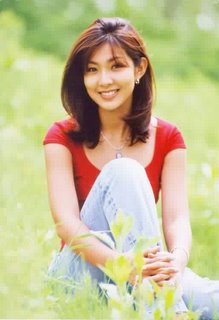

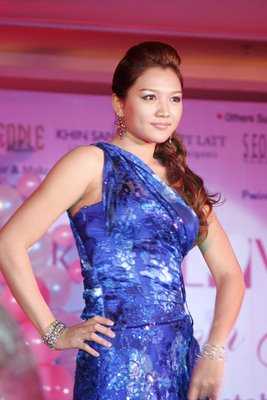
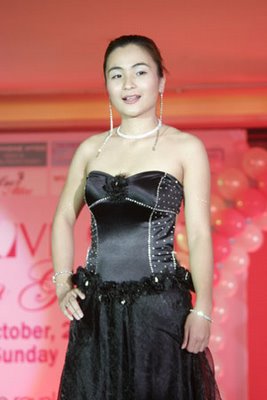

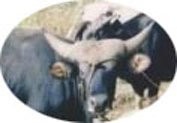 Chinese people call themselves as Chungqua, we call them Chinese. Likewise, Chin people do not actually call themselves Chin in their language. Lai, Zo, Cho such are native terminology used to indicate themselves. However, the name Chin is collectively accepted by all the Chin tribes. Each tribe has its own name, e.g. Asho, Laizo, Zyou, Mizo, Zomi, K'cho etc. These terms could well be cognates, but each has its own pronunciation and sometimes its own meaning. Because of this it seems difficult to chose the particular pronunciation of one language to represent all of them.
Chinese people call themselves as Chungqua, we call them Chinese. Likewise, Chin people do not actually call themselves Chin in their language. Lai, Zo, Cho such are native terminology used to indicate themselves. However, the name Chin is collectively accepted by all the Chin tribes. Each tribe has its own name, e.g. Asho, Laizo, Zyou, Mizo, Zomi, K'cho etc. These terms could well be cognates, but each has its own pronunciation and sometimes its own meaning. Because of this it seems difficult to chose the particular pronunciation of one language to represent all of them.